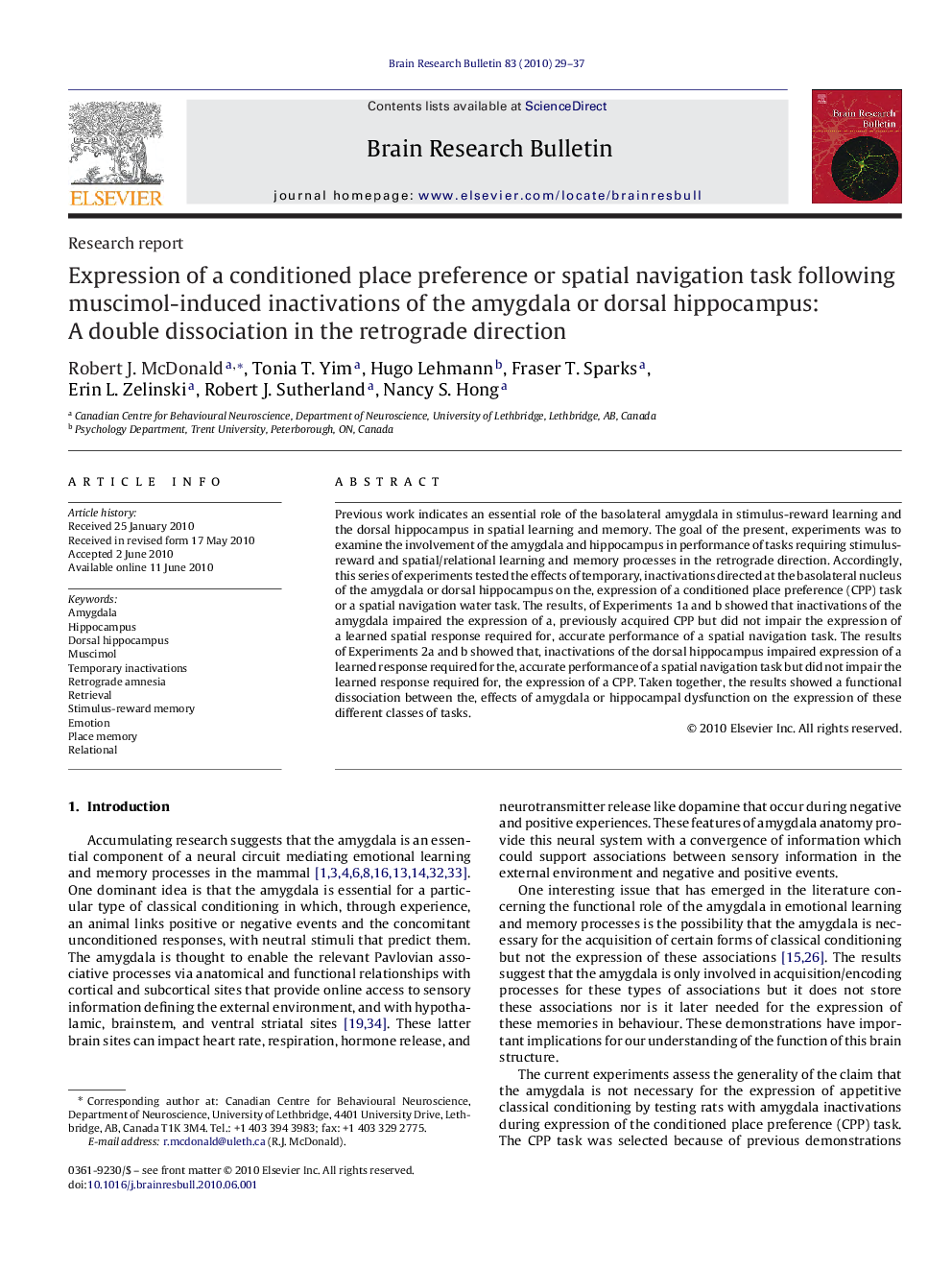| Article ID | Journal | Published Year | Pages | File Type |
|---|---|---|---|---|
| 4319288 | Brain Research Bulletin | 2010 | 9 Pages |
Previous work indicates an essential role of the basolateral amygdala in stimulus-reward learning and the dorsal hippocampus in spatial learning and memory. The goal of the present, experiments was to examine the involvement of the amygdala and hippocampus in performance of tasks requiring stimulus-reward and spatial/relational learning and memory processes in the retrograde direction. Accordingly, this series of experiments tested the effects of temporary, inactivations directed at the basolateral nucleus of the amygdala or dorsal hippocampus on the, expression of a conditioned place preference (CPP) task or a spatial navigation water task. The results, of Experiments 1a and b showed that inactivations of the amygdala impaired the expression of a, previously acquired CPP but did not impair the expression of a learned spatial response required for, accurate performance of a spatial navigation task. The results of Experiments 2a and b showed that, inactivations of the dorsal hippocampus impaired expression of a learned response required for the, accurate performance of a spatial navigation task but did not impair the learned response required for, the expression of a CPP. Taken together, the results showed a functional dissociation between the, effects of amygdala or hippocampal dysfunction on the expression of these different classes of tasks.
